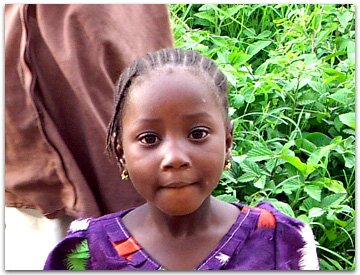What is PAMOJA Africa REFLECT Network?
PAMOJA Africa Reflect Network or popularly called PAMOJA is an African-wide non lucrative, participatory education and development initiative established in the year 2002 by African Reflect practitioners, to facilitate learning, sharing and continuing evolution of Reflect practices in Africa. It forms part of CIRAC (Circle for International Reflect Action and Communication), which is a global organization of Reflect practitioners, set up in 2000. The UNESCO literacy award for the year 2003 went to CIRAC!
What is REFLECT?
Reflect is a structured participatory learning process that facilitates people's critical analysis of their environment, identification and discussion of problems, resulting into practical solutions for sustainable development. It is an innovative approach to adult learning and social change first piloted in Uganda, Bangladesh and El Salvador between 1993 and 1995. It has since spread to over 350 organizations, government ministries and departments in 60 countries across the world. In Africa, Reflect is practiced in more than 23 countries. Reflect came up to supplement other literacy programs in order to bring about change in Africa. Reflect methodology is a fusion of Paulo Friere's adult learning theories, the practices Participatory Rural Appraisal (PRA) and other popular education processes. Reflect is an evolving process that has been adapted to address many situations, for example with children, youth, pastoral development, health, HIV/AIDS, environment management, community forestry management, worker's rights, displaced people. peace and conflict resolution, education, land rights and other related issues.
History of Pamoja
PAMOJA Africa REFLECT Network is an Africa-wide non-lucrative, participatory education and development initiative established in 2002 to co-ordinate REFLECT activities in Africa. It forms part of the CIRAC (which is a global organisation of REFLECT practitioners set up in 2000.
PAMOJA is a Kiswahili word that means ‘together’. This name reflects the organization’s commitment to work with communities for peace, justice and economic development worldwide.
Regenerated Freirean Literacy through Empowering Community Techniques (REFLECT), is a structured participatory learning process that facilitates critical analysis of the environment, identification and discussion of problems, resulting into practical solutions for sustainable development.
It is an innovative approach to adult learning and social change first piloted in Uganda, Bangladesh and El Salvador between 1993 and 1995.
It has since spread over 350 organisations.
REFLECT methodology is a fusion of Paulo Freire’s (founder of adult learning) theory and Participatory Rural Appraisal (PRA).
REFLECT came up when it was realised that other literacy programmes did not yield change on people’s day to day lives.
REFLECT is an evolving process that has been adapted to suit many situations, for example with children, pastoral development, preventive health, environmental management, worker’s rights, displaced people, peace and reconciliation process, community forestry, marginal areas, education, land rights, conflict resolution, HIV/AIDS related issues and youth.
Successive evaluations carried out since 1995 in the three pilot projects consistently revealed that there was dramatic positive change in life styles and communities in these women for example, were more confident and able to address issues that directly affect them. Over the years, REFLECT has developed and spread over 23 countries across Africa including Anglophones, Lusophone and Francophone countries.
The co-ordination of REFLECT Network in Africa was facilitated by ActionAid between 1996 and 2001, through a Regional Co-ordination, Unit based in ActionAid Uganda and sub-regional coordinators in Mali, Ghana Mozambique and South Africa.
In 2001, REFLECT practitioners decided to set up an independent Regional Network.
PAMOJA AFRICA REFLECT NETWORK (PAMOJA), now an independent NGO with a secretariat in Kampala, Uganda is the result of this meeting.
PAMOJA Vision
PAMOJA strives to see that the poor men and women in Africa are able to take control of their destiny by influencing policy makers to listen to their voices and also be able to challenge all dominant power structures in society so as to build a wealthy self sustaining African society. PAMOJA sees this as crucial to reduction of poverty and a precursor to sustainable development.
PAMOJA Mission
PAMOJA exists to facilitate learning, sharing and the continuing evolution of Reflect experiences in Africa, in order to build a critical and enlightened mass of men, women, boys and girls empowered to realise their rights ideals and values.
PAMOJA Values
PAMOJA Values include: mutual respect for all actors, solidarity with the poor, respect for African indigenous knowledge, equitable practice of power at all levels, individual and collective transformation and gender equity.
PAMOJA Core Objectives
- To facilitate the formation and strengthening of PAMOJA Reflect Forums within Africa, promoting inter-agency collaboration and solidarity, facilitating the continuing evolution of Reflect and emergence of distinctively African Approaches.
- To Promote capacity building of Reflect practitioners across Africa through cross-country training for key resource people, exposure/exchange visits, peer evaluations at all levels.
- To promote cross-country collaboration and innovation around key thematic issues in Africa, for example promoting innovation and learning about the role Reflect can play in addressing, HIV/AIDS, conflict, governance and youths.
- To influence the relevant policies and practices of governments, NGOs and donor agencies, through a combination of grassroots mobilization, people's organization and publications that take their base from people's knowledge and experience, with the primary intention of strengthening people's control over their own lives
- To work closely with like-minded organizations and networks within Africa and beyond, so as to build a wider movement that cherishes Reflect practice and the ideas of the organization.
- To specifically promote gender analysis and gender equity within the network and in the Africa region.
Thematic Areas of Interest
PAMOJA is currently dealing in areas such as HIV/AIDS, conflict resolution, education, governance, ICT, etc .
PAMOJA Strategies
In order to achieve our mission, we have adopted the following strategies;
- Link the Africa region with other regional networks, the Global Reflect Network - CIRAC by contributing to wider international debates
- Capacity building. PAMOJA intends to develop and support PAMOJAs, networks and a cadre of resource persons who will hold the mantle of the organization


